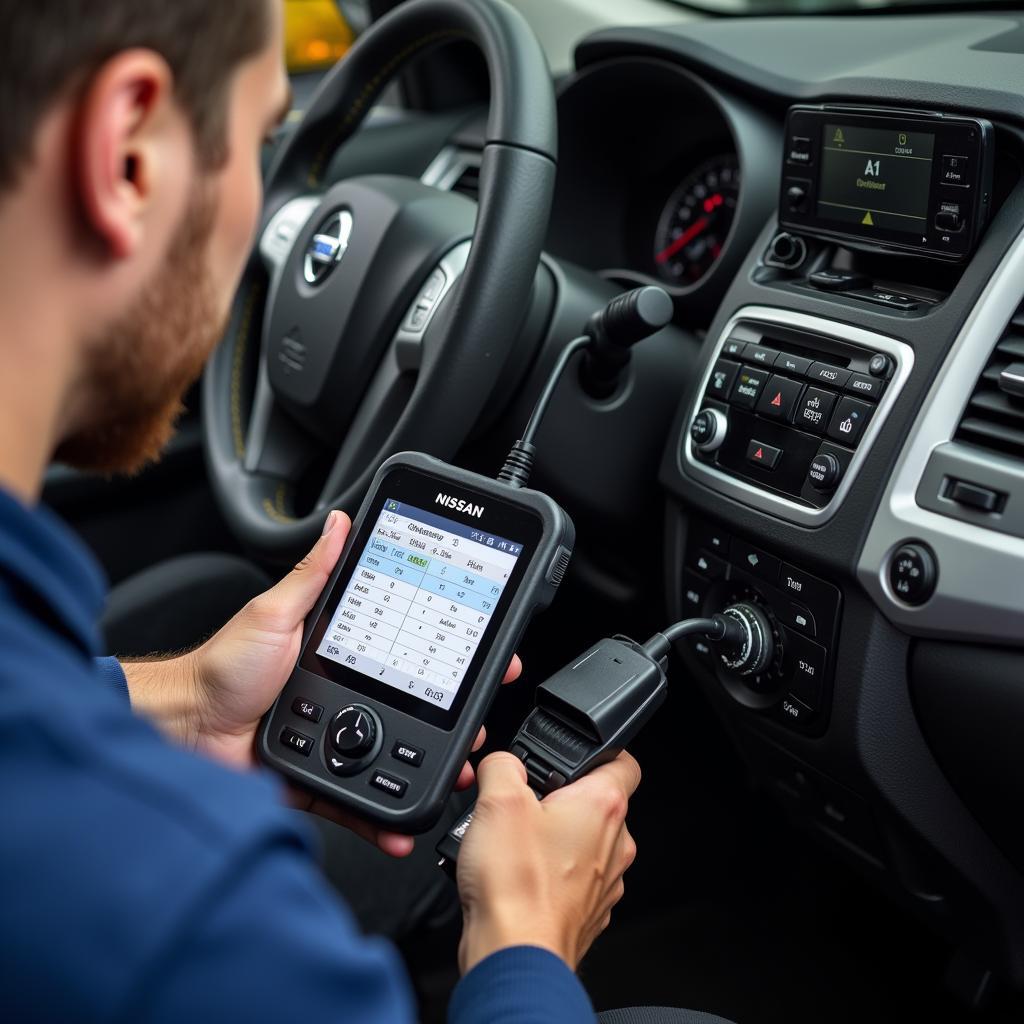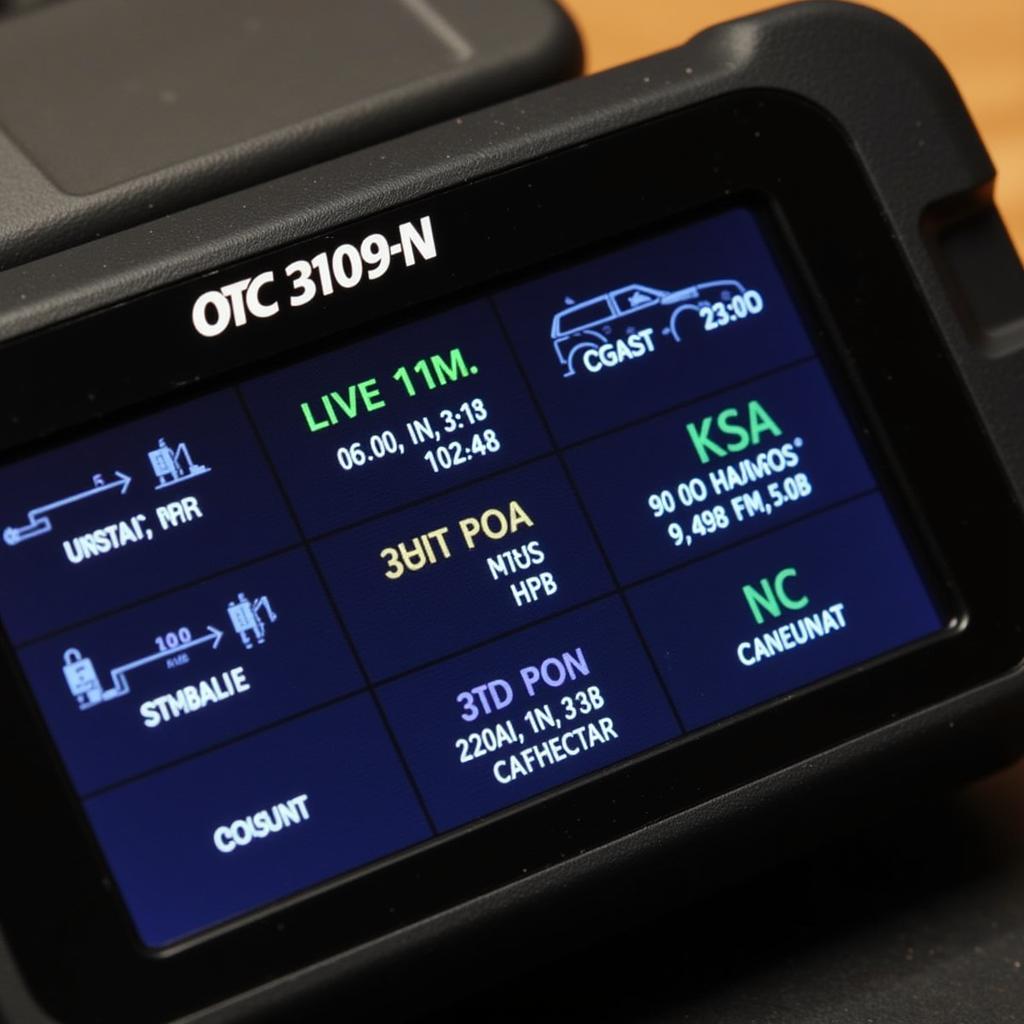Alanine Scanning Tools are becoming increasingly indispensable in automotive electrical engineering, particularly for software and hardware troubleshooting. This technique allows technicians to pinpoint faulty components or code sections within complex automotive systems by systematically replacing specific amino acids with alanine.
What is Alanine Scanning and How Does It Work?
Alanine scanning is a powerful technique used to identify the contribution of individual amino acids to the stability, structure, and function of proteins. In the context of automotive electrical systems, we can think of these “proteins” as the software code or the physical components of a vehicle’s electrical network.
The process involves systematically substituting each amino acid (or in our case, code line or component) with alanine, a neutral amino acid. By observing the effects of these substitutions on the system’s behavior, technicians can identify which specific elements are critical for proper functioning and, conversely, which ones are causing malfunctions.
The Advantages of Using Alanine Scanning Tools
The utilization of alanine scanning tools provides numerous advantages in automotive diagnostics and repair:
- Precision Targeting: Alanine scanning allows technicians to isolate the root cause of electrical issues with remarkable accuracy, eliminating the guesswork often associated with traditional troubleshooting methods.
- Time Efficiency: By quickly pinpointing the problematic component or code section, alanine scanning significantly reduces diagnostic time, leading to faster repairs and increased workshop productivity.
- Cost Effectiveness: The precision of alanine scanning minimizes unnecessary component replacements, saving both time and money for vehicle owners.
Types of Alanine Scanning Tools
Various alanine scanning tools are available, each catering to specific needs within automotive electrical engineering. Some common types include:
- Software-Based Alanine Scanners: These tools analyze software code, identifying potential vulnerabilities and bugs by simulating the effects of alanine substitutions within the codebase.
- Hardware-Based Alanine Scanners: These tools are designed to test physical components within the vehicle’s electrical system, systematically replacing and monitoring the performance of individual parts.
- Integrated Alanine Scanning Systems: These comprehensive systems combine both software and hardware scanning capabilities, providing a holistic approach to automotive electrical diagnostics.
Choosing the Right Alanine Scanning Tool
Selecting the appropriate alanine scanning tool depends on several factors, including:
- The specific needs of the workshop or technician
- The types of vehicles typically serviced
- The complexity of the electrical systems being diagnosed
- Budget considerations
Practical Applications of Alanine Scanning
Let’s explore some real-world examples of how alanine scanning proves invaluable in automotive repair:
Scenario 1: Intermittent Engine Misfire
A vehicle experiences an intermittent engine misfire. Traditional diagnostic methods fail to pinpoint the exact cause. An alanine scanning tool can systematically test individual components within the ignition system, such as spark plugs, ignition coils, and sensors. By analyzing the engine’s response to each substitution, the faulty component is quickly identified and replaced.
Scenario 2: Software Glitch in Infotainment System
A vehicle’s infotainment system suffers from a persistent software glitch. Using a software-based alanine scanning tool, a technician can analyze the infotainment system’s code, simulating the effects of code modifications. This process helps identify the problematic code section, allowing for targeted debugging and a permanent solution.
The Future of Alanine Scanning in Automotive Electrical Engineering
As automotive electrical systems become increasingly complex, the role of alanine scanning tools will continue to grow. Advancements in artificial intelligence and machine learning are poised to further enhance these tools, enabling even faster and more accurate diagnostics.
Conclusion
Alanine scanning tools are powerful assets in the field of automotive electrical engineering. By providing a precise, efficient, and cost-effective approach to troubleshooting, these tools empower technicians to diagnose and repair complex electrical issues with confidence.
For more information about alanine scanning tools and how they can benefit your automotive workshop, contact ScanToolUS at +1 (641) 206-8880 or visit our office located at 1615 S Laramie Ave, Cicero, IL 60804, USA.
FAQs
1. What is the learning curve for using alanine scanning tools?
Most alanine scanning tools are designed with user-friendliness in mind. Basic proficiency can be achieved with minimal training, while advanced features may require more in-depth instruction.
2. Are alanine scanning tools compatible with all vehicle makes and models?
Compatibility varies depending on the specific tool. It’s essential to choose a tool that supports the makes and models you service regularly.
3. Can alanine scanning tools be used by DIY car enthusiasts?
While some basic alanine scanning tools are available for consumer use, professional-grade tools are generally recommended for accurate diagnostics and repairs.
4. Do alanine scanning tools require regular updates?
Yes, to stay current with the latest vehicle models and software updates, regular updates for alanine scanning tools are crucial.
5. What is the average lifespan of an alanine scanning tool?
With proper care and maintenance, a high-quality alanine scanning tool can last for several years, providing a solid return on investment.



